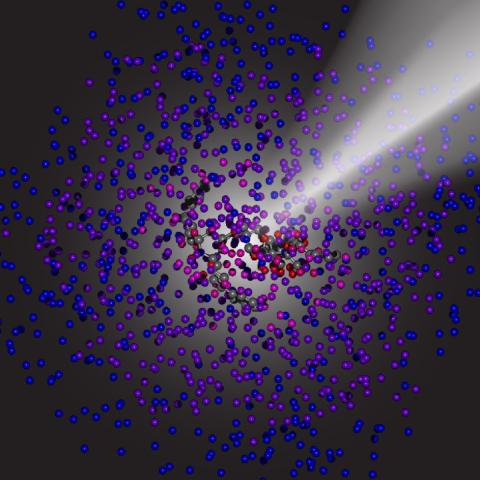Dynamic nuclear polarization (DNP) is a powerful emerging method for enhancing the sensitivity of NMR spectroscopy. DNP enables previously inaccessible experiments for the atomic-level study of surfaces, interfaces and the bulk. While enhancements afforded by DNP are generally high for most cases, current state-of-the-art polarizing agents used in these experiments are far from achieving the maximum theoretically possible sensitivity gains.
Computational modeling can accelerate the design of DNP polarizing agents and formulations and bridge this gap. Until now, there have been inherent limitations to scaling the DNP theory beyond ~10 spins, severely constraining simulation sizes. By dramatically lowering the size of the density matrix through state-space restrictions, ab initio simulation of periodic spin systems containing upwards of 1000 spins have been demonstrated.

These simulations reproduce experimentally observed DNP enhancements in both solutions and materials, paving the way for the use of such theory in experiment design. Already, the simulations have identified a key structural feature found in some polarizing agents that enables them to push more hyperpolarization out to the observable nuclei and providing higher enhancements. In future work, this theory will be applied as a nanoscale depth gauge for the characterization of surface and sub-surface structure in nanoparticulate materials.
F. A. Perras, M. Raju, S. L. Carnahan, D. Akbarian, A. C. T. van Duin, A. J. Rossini, M. Pruski. Full-Scale Ab Initio Simulation of Magic-Angle-Spinning Dynamic Nuclear Polarization, J. Phys. Chem. Lett., 2020, 11, 5655-5660. DOI: 10.1021/acs.jpclett.0c00955.
